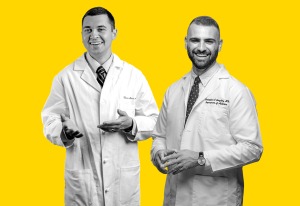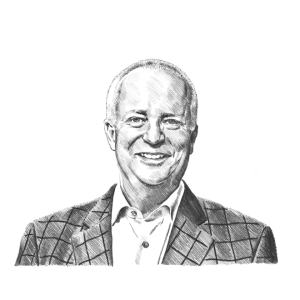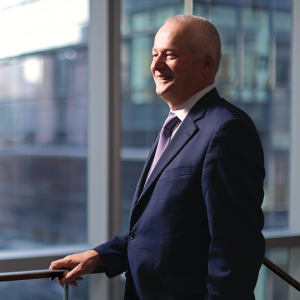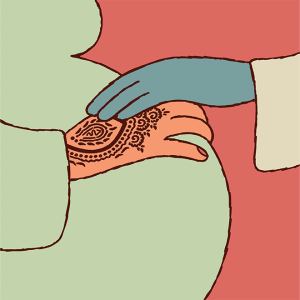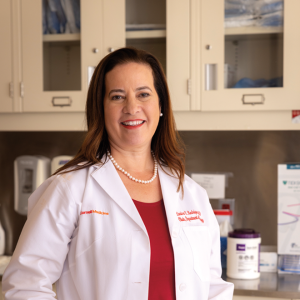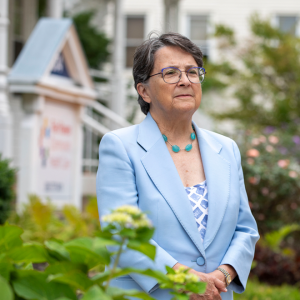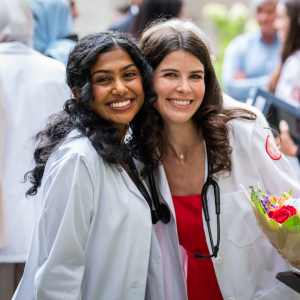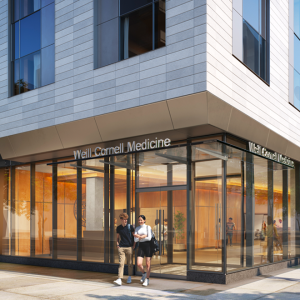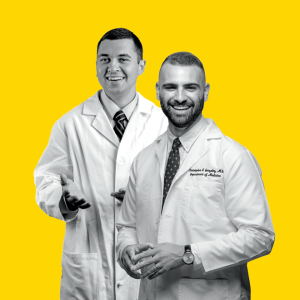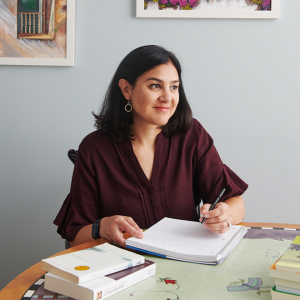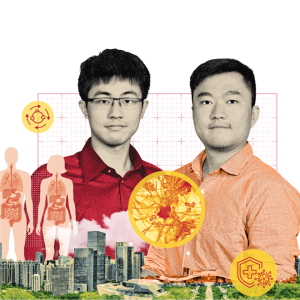Why mentorship is important
Dr. Mora: At the end of my clerkship year, I became more involved in extracurricular activities, which is where I met Chris and learned about his experience doing health equity research. Since graduating medical school, we’ve kept in touch and discussed how I can continue to pursue my interest in mentoring and increasing diversity in medicine while practicing primary care. Chris was basically the perfect mentor because he had been through similar life challenges and made me feel like I could succeed. I’m very lucky to have him in my life, and I hope to continue to learn from him.
Dr. Gonzalez: Programs that facilitate mentorship for Black and Latino individuals are vital. The reality is that I was in Hector’s shoes not that long ago. I would not be the physician I am today had it not been for mentors who really stretched out their hands and not only supported and listened to me, but also pushed me forward and showed me they had bigger visions for me than I did for myself. I’ve always been passionate about health equity, but I could never have imagined that I would become a primary care physician using research to deliver more equitable health care.
Why cultural affinity groups matter
Dr. Mora: I got involved in Black and Latino Men in Medicine two years after Dr. Maurice Hinson founded it during his residency at NewYork-Presbyterian/Weill Cornell. He had this vision of wanting to bring together Black and Latino men of all ages and levels of training not only for mentorship but for networking and building a sense of community and family. It honestly made my medical school experience.
Dr. Gonzalez: As a first-generation physician, I had no examples of what a physician’s day-to-day looked like, the distribution of patient care versus administrative responsibilities versus research — until and because of cultural affinity and diversity, equity and inclusion groups, including BLMiM, where I met Hector. These
are groups that provided me with mentors — many of them extraordinary Black and Latina women. It’s not just mentorship between Black and Latino men, it’s mentorship of Black and Latino men that’s important.
What their relationship means to them
Dr. Gonzalez: Hector inspires me in every way. He’s consistently stepped up to be a leader. If he’s offered an opportunity, he takes it. I think that kind of bravery and ambition is extremely inspiring.
Dr. Mora: Chris has been an instrumental part of my journey through medical school and beyond. When I decided I wanted to do primary care, Chris got me involved with qualitative research projects that made me realize I don’t have to be doing heavy bench research to make a significant impact. It opened my eyes to the possibility of remaining in academics while seeing and treating patients, so I can help influence the national conversations about what we can do to increase diversity in medicine.
